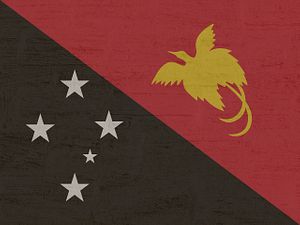Ten United Nations special rapporteurs and the chair of the UN Working Group on Human Rights and Transnational Corporations have expressed concerns to the Papua New Guinea (PNG), Australian and Chinese governments over a proposed mine being developed by the Frieda River Limited company on the river Sepik in PNG.
According to letters sent by the U.N. representatives, the project poses “serious risks to the enjoyment of human rights of affected populations, in the context of risk of failure of a proposed tailings dam, and associated infrastructure on the proposed Frieda River gold and copper mine in Papua New Guinea.”
“We remain concerned that critical information about the tailings dam, including the dam break analysis, have been made neither publicly available, nor available to affected community members and human rights defenders who request it,” they wrote.
The Frieda River copper and gold project is controlled by joint venture between Chinese state-owned PanAust and Australian Stock Exchange-listed Highlands Pacific, at 80 percent and 20 percent respectively.
The proposed Frieda River gold and copper mine, if built, will be the largest mine ever built in PNG and one of the largest in the world. The project will have a footprint of at least 16,000 hectares, comprising the open pit mine, a hydroelectric dam and related infrastructure such as roads and an airport.
The Environmental Defenders Office (EDO) reported that the Australian government responded by not accepting that it has human rights obligations in relation to the activities of Australian individuals and companies operating overseas.
The Executive Director of the Centre for Environmental Law and Community Rights in PNG, Peter Bosip, told the EDO that the Frieda River Project has corporate links to Australia and “therefore, the Australia government has an obligation under international law to take measures to ensure the company and its operations will not violate human rights. This should be cause for grave concern for the Australian government and all Australians.”
At 1126 kilometers long, the Sepik, often referred to as the Amazon of PNG, is considered one of the world’s last untouched river systems and one of the largest wild river systems in the Asia-Pacific. The Frieda River flows into the Sepik.
A submission to UNESCO seeking to have the Sepik listed as a World Heritage Site by Papua New Guinea in 2006 acknowledged that “the Sepik River is one of the least developed areas in PNG and home to approximately 430,000 people who depend almost entirely on products from the rivers and forests for their livelihoods.”
In a recent video released by the Save the Sepik organization, the Founder of Project Sepik, Manu Peni, said: “The river is a spirit that is living…We have languages, songs and stories that say it could wake up and talk to you… it sleeps, it dreams. All its lifeforms, both plants and animals are connected to us. It’s my identity and [it’s] going to be killed.”
In 2016, the ABC reported that PanAust managing director, Fred Hess, said “”It is important to understand what we have at Frieda River. What we are sitting on is one of the ten largest undeveloped copper deposits in the world.”
The Frieda River company’s own environmental impact statement acknowledged that a failure of the project will result in a loss of life.
Despite the concerns of the local population, the U.N. representatives noted in their letters how the consultation process in the Sepik basin has been marked by violence and police suppression.
“Indigenous people in the Sepik Basin protested against the Frieda Mine during the consultation period. In response, local police and officers hired by the proponent adopted measures to intimidate and suppress opposition to the project,” they wrote.
Papua New Guinea has a troubling history with foreign mining companies abusing the rights of local people by way of destroying the ecosystem they depend on.
Last week more than 150 residents of Bougainville, an autonomous region of PNG, filed a complaint with Australian authorities against mining giant Rio Tinto, claiming the pollution left behind from the Panguna mine that Rio Tinto operated has poisoned local water sources and put the community’s lives at risk.
“We have seen this movie of Australia-based companies causing havoc to PNG’s rivers before,” said Dr. Luke Fletcher, Executive Director of Jubilee Australia Research Centre in a statement. “The Australian-sanctioned destruction of PNG’s natural environment must end now with the rejection of Pan Aust’s irresponsible plans for the Sepik.”

































